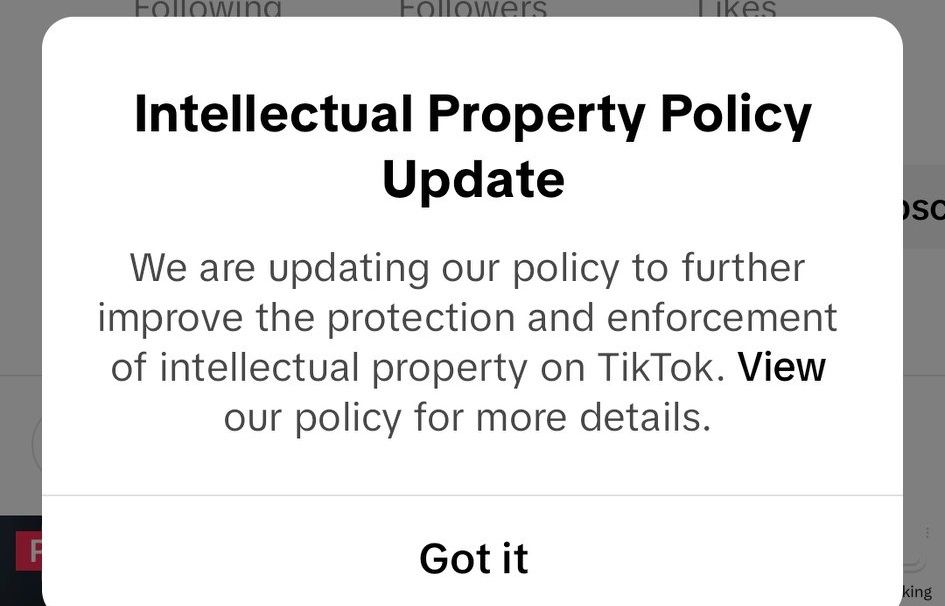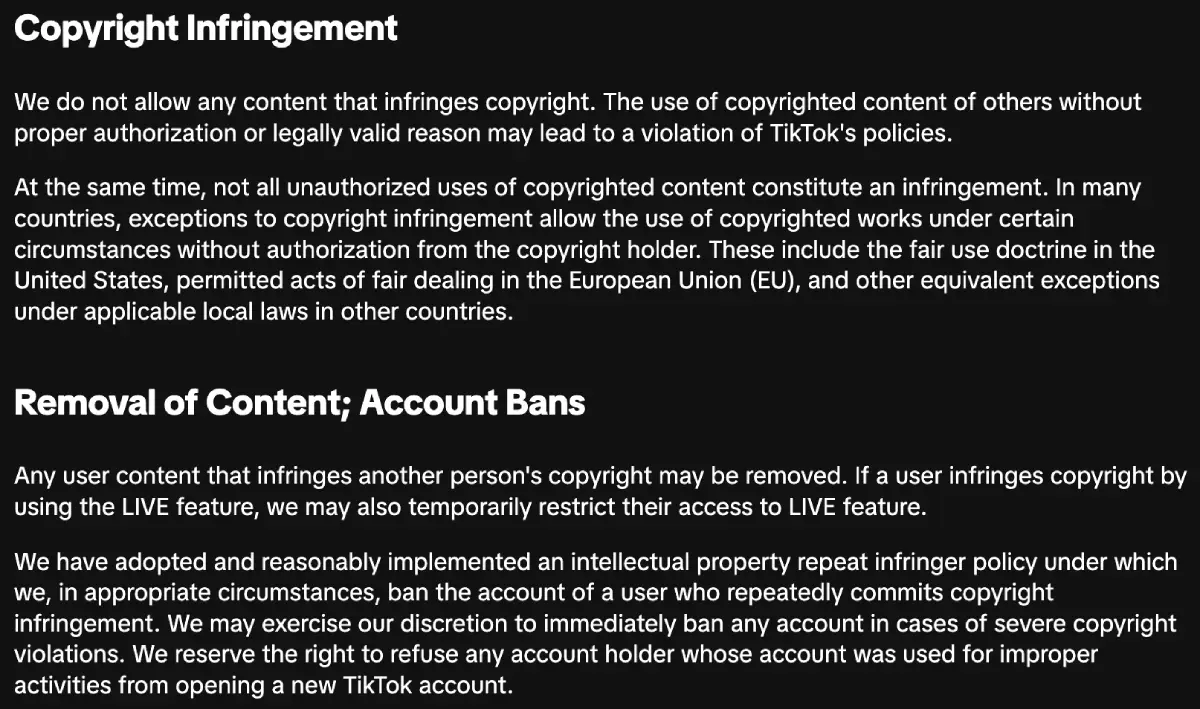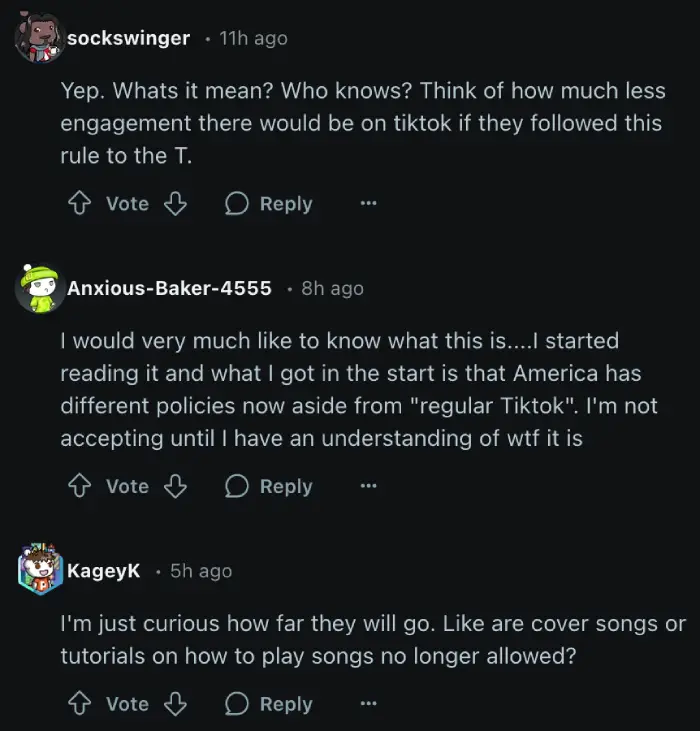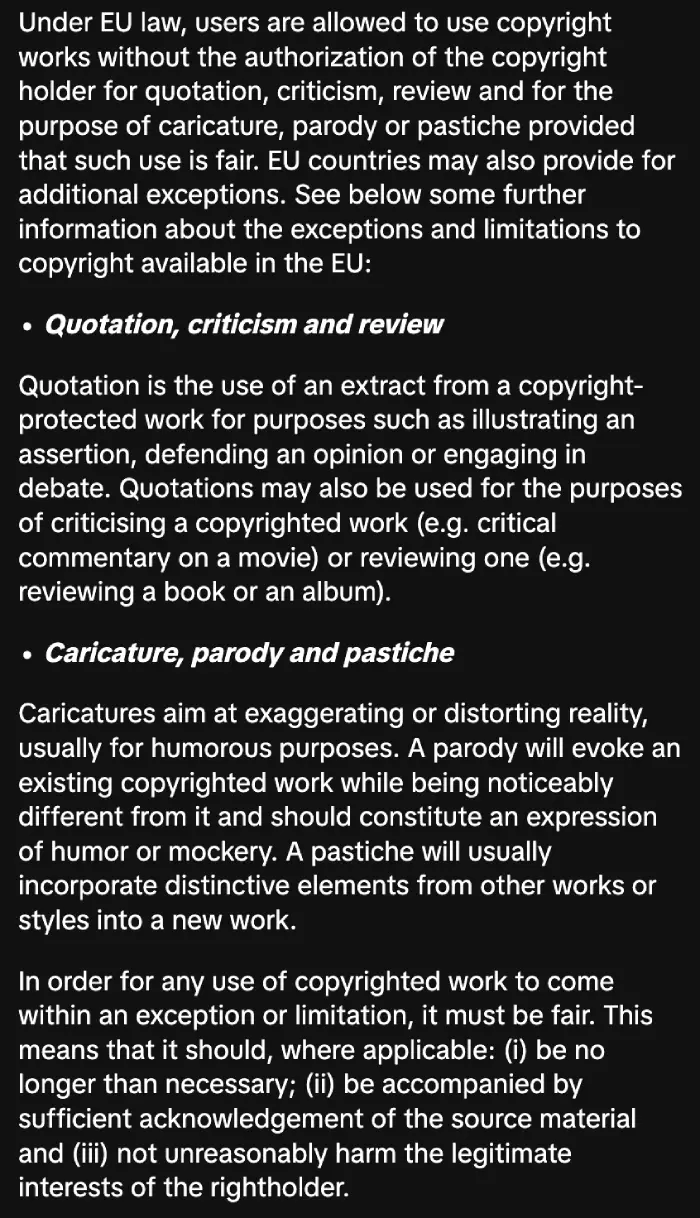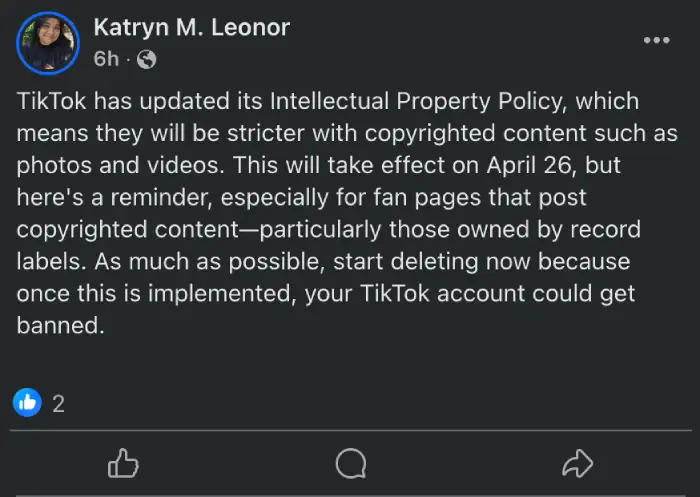TikTok users scrolling through their feeds this week noticed a pop-up notification announcing updates to the platform’s Intellectual Property Policy. The changes, set to take effect April 26, 2025, aim to crack down on unauthorized use of copyrighted material. This has led to some confusion and concern among creators.
The revised policy clarifies that any content found to infringe on copyrights — including music, videos, or trademarks — could be removed, with repeat offenders facing account bans. Temporary restrictions on TikTok’s LIVE feature may also apply for violations. While the platform has long prohibited unauthorized use of protected material, the new guidelines signal a stricter approach. For instance, fan accounts dedicated to reposting content from major artists or brands could be at higher risk, especially if they don’t have permission from rights holders.
User reactions have been mixed. On Reddit, one commenter wondered whether cover songs or music tutorials — staples of TikTok’s creator community — would now be flagged. “Are cover songs or tutorials on how to play songs no longer allowed?” asked a user in a thread discussing the update. Someone else expressed skepticism about how consistently the rules would be enforced. “Think of how much less engagement there would be on TikTok if they followed this rule to the T,” another user wrote.
The policy does carve out exceptions for content protected under “fair use” doctrines, such as parody, criticism, or educational material. European Union users gain specific allowances for caricatures, pastiches, and quotations, provided the use is “fair” and doesn’t harm the rights holder’s interests. Still, the burden falls on creators to navigate these nuances
Katryn M. Leonor, a TikTok user who shared details of the update on Facebook, warned fan pages to start deleting copyrighted content now to avoid penalties. “Once this is implemented, your TikTok account could get banned,” she wrote.
Rights holders, including record labels and brands, now have clearer avenues to report violations through TikTok’s online forms. Users accused of infringement can appeal removals within the app, though the process varies by region. Outside the EU, for example, TikTok may share a user’s contact information with the rights holder during an appeal, potentially exposing them to legal action.
While the platform has become a launchpad for emerging artists, its reliance on trending sounds and remixes often blurs the lines of ownership. Stricter enforcement could protect artists and brands, but it might also stifle the spontaneity that makes TikTok unique.
As the effective date approaches, creators will likely have to weigh their options. Some may pivot to original content, while others could test the boundaries of “fair use” exceptions. For now, the message is clear: TikTok is tightening its rules, and the era of unchecked reposts might be coming to an end.
TechIssuesToday primarily focuses on publishing 'breaking' or 'exclusive' tech news. This means, we are usually the first news website on the whole Internet to highlight the topics we cover daily. So far, our stories have been picked up by many mainstream technology publications like The Verge, Macrumors, Forbes, etc. To know more, head here.


